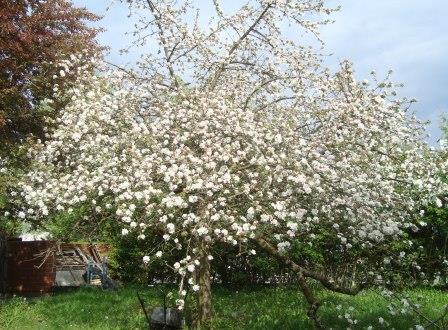Gardens and biodiversity
Pollinator communities and pollination of apple trees
in gardens in an urban-rural gradient
Team: Dr. Maria-Helena Pereira-Peixoto Prof. Dr Alexandra Maria Klein | ||
Project duration: January 2014 - Dezember 2015 | ||
Funding: Science without Barriers - CAPES Foundation Ministry of Education of Brazil |
In this project, we investigate the importance of gardens to promote bees, wasps, and their ecosystem functioning. The focus is on ecosystem functions mediated by macro-organisms with special emphasis on pollination of apple trees and diversity of bees and wasps in residential gardens, in a gradient from urban area towards rural landscapes. |
 |
| During spring in 2014, we observed pollinator communities in 20 gardens along an urban-rural gradient in and around the city of Freiburg, Germany. The aim is to investigate the influence of degree of urbanization (measured by the amount of built areas) on pollination of apple trees and whether richness and abundance of the garden plants influence the communities of pollinators and pollination of the apple trees in these gardens. This project will also continue in 2015. Thus, we expect that diversity of pollinators communities respond differently to the density of urban characteristics and that attractiveness of pollinators to apple trees in gardens is influenced by the other garden plants around. Thereby, we aim to highlight the importance of residential gardens in urban areas, for providing valuable nesting and feeding resources for several pollinator species. |
Publications
- Staab, M., Pereira-Peixoto, M.H. & Klein, A.M. (2020): Exotic garden plants partly substitute for native plants as resources for pollinators when native plants become seasonally scarce. Oecologia 194: 465-480. Link
